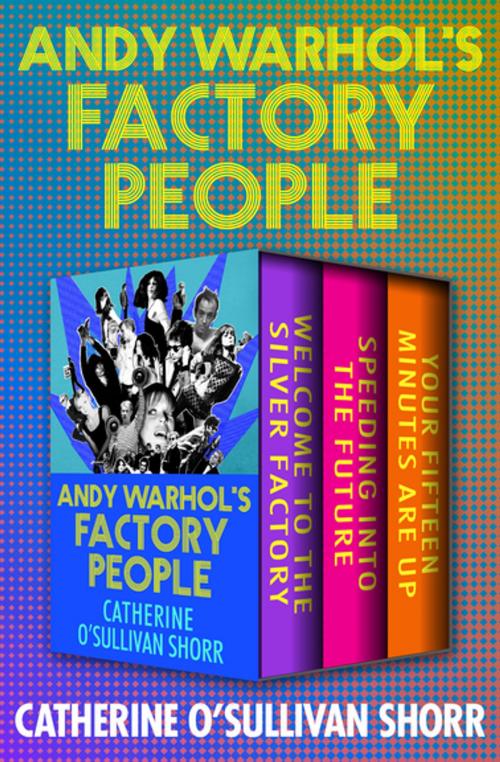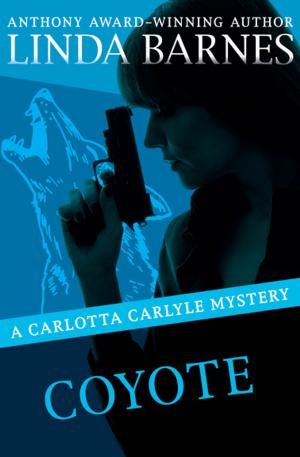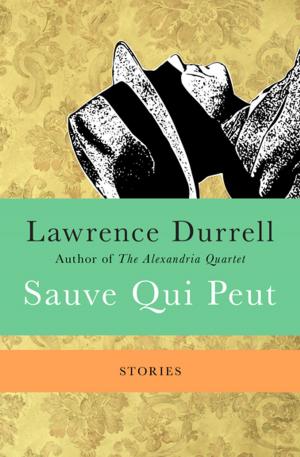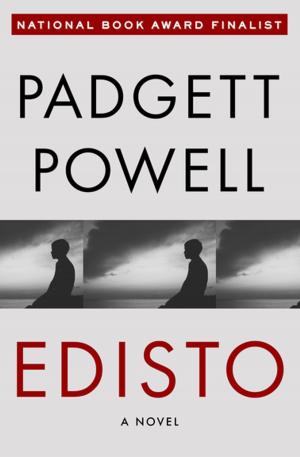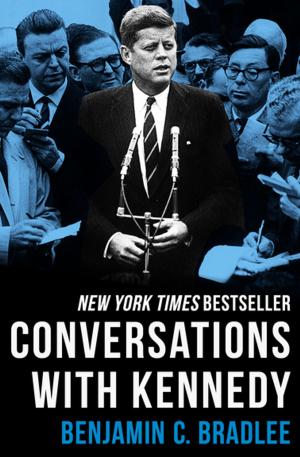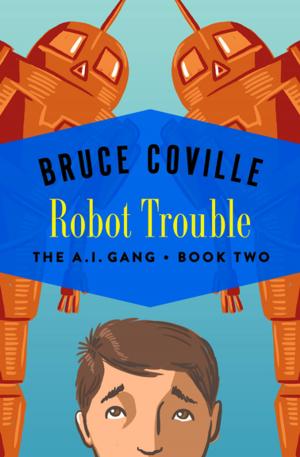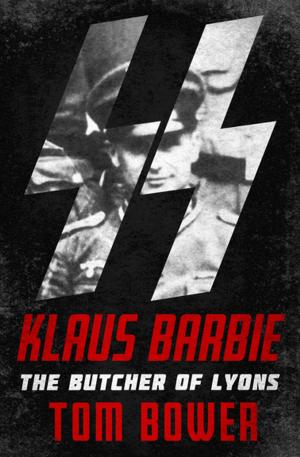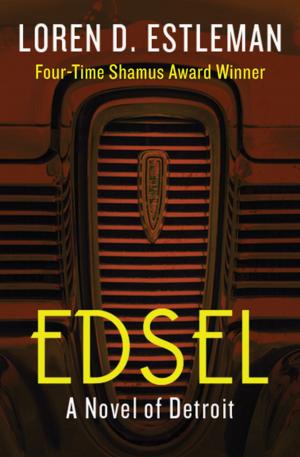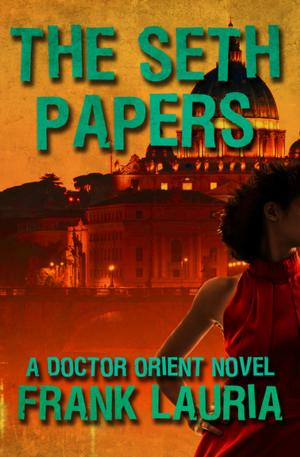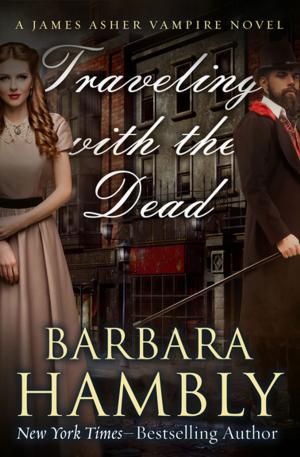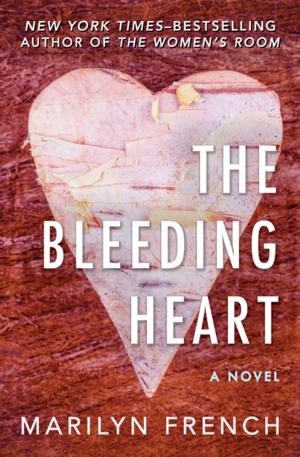Andy Warhol's Factory People
Welcome to the Silver Factory, Speeding into the Future, and Your Fifteen Minutes Are Up
Nonfiction, Art & Architecture, General Art, Popular Culture, Biography & Memoir, Artists, Architects & Photographers| Author: | Catherine O'Sullivan Shorr | ISBN: | 9781504055994 |
| Publisher: | Open Road Media | Publication: | September 18, 2018 |
| Imprint: | Open Road Media | Language: | English |
| Author: | Catherine O'Sullivan Shorr |
| ISBN: | 9781504055994 |
| Publisher: | Open Road Media |
| Publication: | September 18, 2018 |
| Imprint: | Open Road Media |
| Language: | English |
Based on the television documentary: A three-part oral history of the Pop Art sensation’s inner circle and their dazzling world of art, drugs, and drama.
Featuring a new introduction by the author, special to this collection, this three-part companion volume to Emmy Award–winning Catherine O’Sullivan Shorr’s documentary Andy Warhol’s Factory People is an unprecedented exposé of an exhilarating and tumultuous time in the 1960s New York City art world—told by the artists, actors, writers, musicians, and hangers-on who populated and defined the Factory. “Different [in] its avowed bottom-up approach: Warhol as a function of his followers is the idea. This time . . . it’s the interviews that tell the tale” (Robert Lloyd, Los Angeles Times).
Welcome to the Silver Factory: In 1962, frustrated with advertising work, Warhol sets up his legendary studio in an abandoned hat factory on Manhattan’s 47th Street. The “Silver Factory” quickly becomes the hub of Warhol’s creative endeavors—the space where he constantly works while an ever-changing cast of characters and muses passes through with their own contributions.
Speeding into the Future: In a peak period from 1965 through 1966, Warhol creates the notion of the “It Girl” with ingenuous debutante Edie Sedgwick; discovers Lou Reed, the Velvet Underground, and Nico, the gorgeous chanteuse who becomes his next “It Girl”; and directs—with Paul Morrissey—his most commercially successful film, the art house classic, Chelsea Girls.
Your Fifteen Minutes Are Up: By 1967, it seems that the Factory has outlived its fifteen minutes of fame. Superstars like Edie Sedgwick fall victim to drugs. Factory denizens have falling-outs with Warhol, as do the Velvet Underground, who are also caught up in disputes of their own. Into the chaos comes radical feminist Valerie Solanas, who shoots Warhol and seriously injures him. He survives—barely—but the artist, and his art, are forever changed.
Based on the television documentary: A three-part oral history of the Pop Art sensation’s inner circle and their dazzling world of art, drugs, and drama.
Featuring a new introduction by the author, special to this collection, this three-part companion volume to Emmy Award–winning Catherine O’Sullivan Shorr’s documentary Andy Warhol’s Factory People is an unprecedented exposé of an exhilarating and tumultuous time in the 1960s New York City art world—told by the artists, actors, writers, musicians, and hangers-on who populated and defined the Factory. “Different [in] its avowed bottom-up approach: Warhol as a function of his followers is the idea. This time . . . it’s the interviews that tell the tale” (Robert Lloyd, Los Angeles Times).
Welcome to the Silver Factory: In 1962, frustrated with advertising work, Warhol sets up his legendary studio in an abandoned hat factory on Manhattan’s 47th Street. The “Silver Factory” quickly becomes the hub of Warhol’s creative endeavors—the space where he constantly works while an ever-changing cast of characters and muses passes through with their own contributions.
Speeding into the Future: In a peak period from 1965 through 1966, Warhol creates the notion of the “It Girl” with ingenuous debutante Edie Sedgwick; discovers Lou Reed, the Velvet Underground, and Nico, the gorgeous chanteuse who becomes his next “It Girl”; and directs—with Paul Morrissey—his most commercially successful film, the art house classic, Chelsea Girls.
Your Fifteen Minutes Are Up: By 1967, it seems that the Factory has outlived its fifteen minutes of fame. Superstars like Edie Sedgwick fall victim to drugs. Factory denizens have falling-outs with Warhol, as do the Velvet Underground, who are also caught up in disputes of their own. Into the chaos comes radical feminist Valerie Solanas, who shoots Warhol and seriously injures him. He survives—barely—but the artist, and his art, are forever changed.
